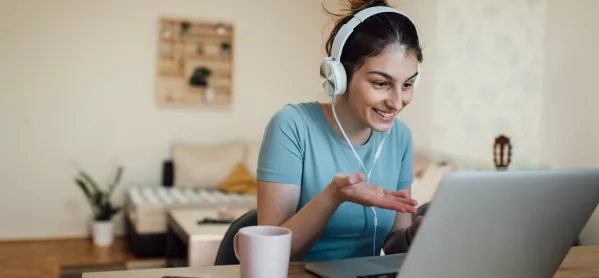- Home
- Is it time to scrap parents’ evenings?
Is it time to scrap parents’ evenings?

For decades, parents’ evenings have been a headache for schools.
Yes, we all recognise the importance of seeing parents, but putting teachers through blocked-off evenings of back-to-back meetings leaves them feeling utterly drained.
Why do we do this? They usually take place after a full school day. And with increased class sizes, teachers often don’t get to see all the parents despite making themselves available for a four-hour time slot.
Not only that, but the non-stop talking can leave teachers feeling hoarse and exhausted, often resulting in loss of voice, and sometimes even absence owing to illness.
If you think that this system is bad for teachers, then you’ve also got to consider the perspective of parents. Many have to rush from work to school with little time for dinner, and that’s not to mention the hassle of sorting out childcare, and having no time for themselves to unwind from their day as they then they have to queue to see teachers who are often running behind schedule!
Where is the work-life balance for both parties?
A new way
I believe that our format of parents evenings are dated and not conducive to the needs of teachers and parents. Fortunately, we now know that there is another way.
It’s been really interesting to observe how teachers have connected with parents during the pandemic.
Despite the partial school closures, teachers have continued to be in contact with parents, and without four-hour parents’ evenings.
Instead, we have had online meetings that enabled parents and teachers to safely socially distance during the Covid-19 pandemic.
Furthermore, I have found that conversations with parents in this format have been more meaningful and have happened more frequently, but with less stress, because there was a real understanding about the shared responsibility for teaching and learning and managing behaviour.
What are the requirements for parents’ evenings?
We know there has to be communication between home and school. The Education (Pupil Information) (England) Regulations 2005, states that in all maintained schools the headteacher must “make arrangements to enable the recipient of the report to discuss its content with the pupil’s teacher, if he so wishes.”
When I delved a bit deeper with my research it appears schools have tended to use parents’ evenings to meet the above requirement, however, there is no strict guidance on how the discussions must operate and no requirement that they should be in the form of a parents’ evening. Ultimately, it is for schools to choose the most effective method of discussing pupil progress with parents.
My challenge in the new academic year is to get my school actively thinking about how we can develop more effective methods of discussing pupil progress with the majority of parents, which ensures a life-work balance for all, and supports staff wellbeing.
What could help?
1. Technology
We should use technology to help reduce workload and hours and allow staff to have online meetings with parents.
With the prevalent use of smartphones, and more and more households and workplaces being fully wifi supported, a parent could take 5-10 minutes out of their workday to chat to a teacher about their child’s progress without having to take significant time off work to travel or give up an entire evening.
Using technology allows for more relaxed, private meetings, which can happen at a time that is mutually beneficial to both parties. This might mean later in the evening when the teacher has got home and sorted out dinner for their own kids. And if anyone has to wait, at least all parties are at home and not waiting around in cold halls and having to endure late drives home.
2. Using the school day
Parents’ evenings are part of a teacher’s directed time, so let’s build it into the teaching day or the standard one-hour meeting time after school.
We could keep one or two periods a week clear for parents who need to be seen via online meetings. This is slotted into the teacher’s non-contact time on their timetable.
Alternatively, we could have a dedicated one-hour slot after school twice a month. Shorter slots might be preferable to both teachers and parents.
Ultimately, we know the importance of seeing parents, but let’s look at what we can learn from lockdown and the way we engaged with parents. We should continue to use best practice, and find a way that is less exhausting, as well as being more comfortable for both parent and teachers. This will be how we support wellbeing for all.
Clare Erasmus is head of the digital technology and communications faculty at Brighton Hill Community School in Basingstoke
Keep reading for just £1 per month
You've reached your limit of free articles this month. Subscribe for £1 per month for three months and get:
- Unlimited access to all Tes magazine content
- Exclusive subscriber-only stories
- Award-winning email newsletters



